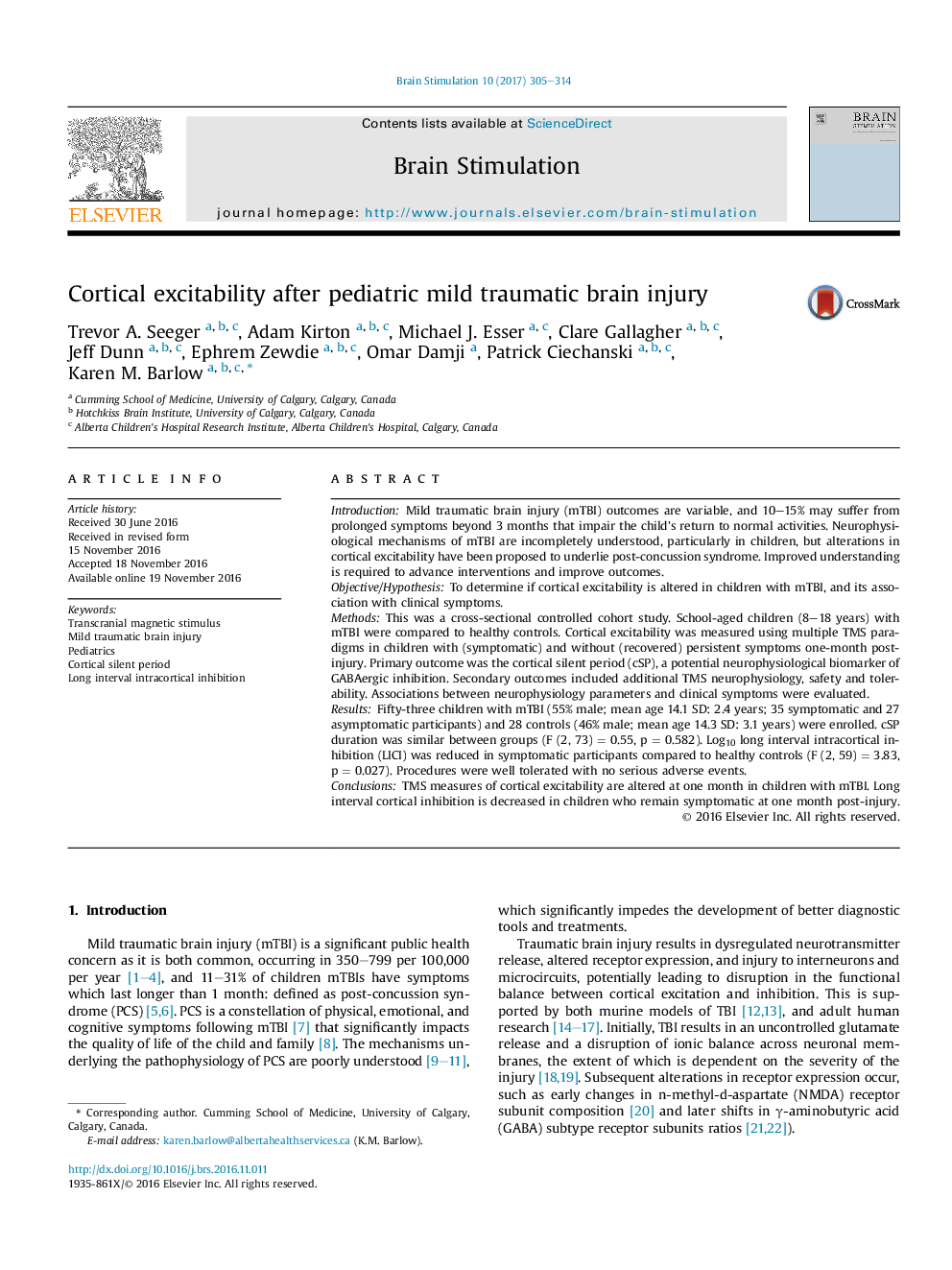| Article ID | Journal | Published Year | Pages | File Type |
|---|---|---|---|---|
| 5626704 | Brain Stimulation | 2017 | 10 Pages |
â¢Children with mild traumatic brain injury and concussion tolerate single and paired pulse TMS.â¢Children with persistent symptoms after mTBI have reduced long interval intracortical inhibition.â¢Unlike adult cohorts, cortical silent period was not different in children following mTBI.
IntroductionMild traumatic brain injury (mTBI) outcomes are variable, and 10-15% may suffer from prolonged symptoms beyond 3 months that impair the child's return to normal activities. Neurophysiological mechanisms of mTBI are incompletely understood, particularly in children, but alterations in cortical excitability have been proposed to underlie post-concussion syndrome. Improved understanding is required to advance interventions and improve outcomes.Objective/HypothesisTo determine if cortical excitability is altered in children with mTBI, and its association with clinical symptoms.MethodsThis was a cross-sectional controlled cohort study. School-aged children (8-18 years) with mTBI were compared to healthy controls. Cortical excitability was measured using multiple TMS paradigms in children with (symptomatic) and without (recovered) persistent symptoms one-month post-injury. Primary outcome was the cortical silent period (cSP), a potential neurophysiological biomarker of GABAergic inhibition. Secondary outcomes included additional TMS neurophysiology, safety and tolerability. Associations between neurophysiology parameters and clinical symptoms were evaluated.ResultsFifty-three children with mTBI (55% male; mean age 14.1 SD: 2.4 years; 35 symptomatic and 27 asymptomatic participants) and 28 controls (46% male; mean age 14.3 SD: 3.1 years) were enrolled. cSP duration was similar between groups (F (2, 73) = 0.55, p = 0.582). Log10 long interval intracortical inhibition (LICI) was reduced in symptomatic participants compared to healthy controls (F (2, 59) = 3.83, p = 0.027). Procedures were well tolerated with no serious adverse events.ConclusionsTMS measures of cortical excitability are altered at one month in children with mTBI. Long interval cortical inhibition is decreased in children who remain symptomatic at one month post-injury.
